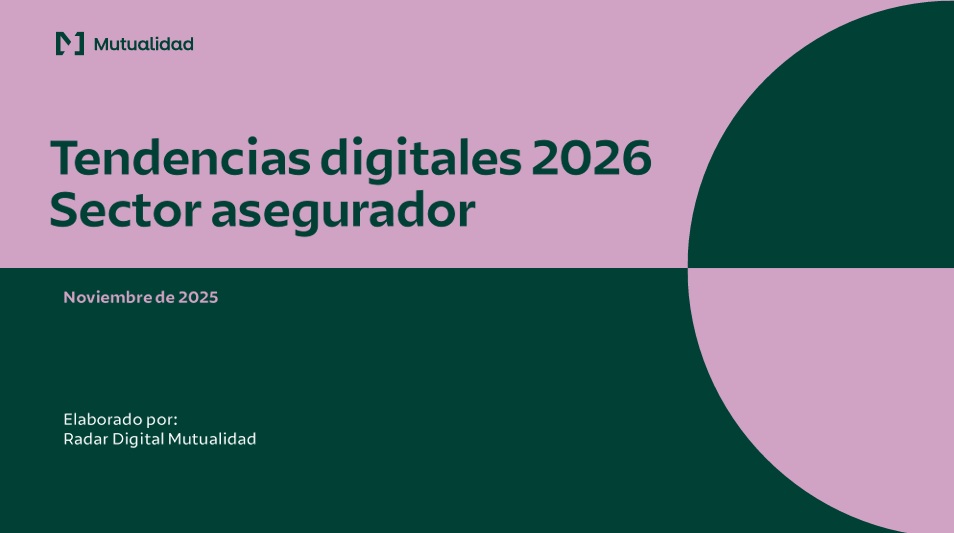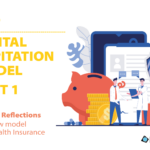The Spanish insurance sector is on the verge of a ‘major disruption’, marked by the ubiquitous Artificial Intelligence (AI). According to a recent report published by Mutualidad (II Radar de Radares), the future of insurance will revolve around a powerful triangle: AI, Data and Talent. At Delonia, we are aligned with this vision, offering solutions that directly address these macro trends to ensure the scalability and profitability of digital transformation.
Summary of the 6 key macro trends
The report details six technological pillars that will set the agenda in 2026:
1. Generative AI as a driver of disruption:
Trend: after a 2025 focused on governance, 2026 will be the year of real breakthrough. 76% of insurers already use AI in pilot projects.
Barriers: difficult-to-calculate ROI, governance framework (including ethical oversight), and talent shortage.
2. Cultural change and talent as a foundation:
Trend: Cultural transformation is essential for AI scalability. Internal training is critical.
Barriers: skills deficits and retraining (77% of senior management see their teams as unprepared), the algorithmic trust gap, and legacy systems.
3. Process automation (RPA + AI):
Trend: combining RPA with AI for more agile, customer-centric processes. This has resulted in a reduction of up to 40% in manual tasks.
Barriers: the obstacle of legacy systems, the lack of standardised data, and the need to select use cases with sufficient volume to ensure profitability (especially in small and medium-sized enterprises).
4. Hyper-personalisation of the offer:
Trend: customers expect personalised, agile and transparent products, which increases customer retention by 15%. Willingness to share data has risen to 60%.
Barriers: legal and privacy constraints, dependence on data quality and updating, and mistrust of algorithmic decisions.
5. Digital ecosystems and collaboration:
Trend: a collaborative model driving 30% of insurance transactions by 2028. The main motivation is to expand reach and improve user experience.
Barriers: technological complexity for integration, reduced margins due to profit sharing and regulatory risks.
6. Data management, analytics and governance:
Trend: Quality data is the foundation of AI and a competitive advantage. Global investment in insurance analytics is projected to grow from $16.5 billion (approximately €14.3 billion) in 2025 to nearly $44 billion (approximately €38.2 billion) in 2032.
Barriers: lack of data quality and consistency, shortage of analytical talent, and governance and privacy issues that limit innovation.
Delonia assessment: transforming challenges into opportunities
At Delonia, we see these challenges as a clear roadmap for the future of insurance. Our approach is designed to mitigate the main barriers mentioned in the report, enabling our clients to move forward with confidence in the ‘Third Industrial Revolution’, from the application of practical strategies for implementing new technologies to integration within the ecosystem of existing systems in organisations.

1. We address ROI and AI governance
The biggest ‘pain point’ is calculating ROI in AI operations. At Delonia, we work with high-impact use cases with demonstrable profitability (such as intelligent claims automation or authorisation management in health insurance), linking investment in AI directly to improved operational efficiency (cost reduction) and customer experience (increased retention). In addition, our projects integrate governance and ethics frameworks from the outset to ensure secure and transparent deployment.
2. We solve the problem of non-standardised data
The barriers to automation and hyper-personalisation can be summarised as data quality and standardisation. Our data pipelines and data governance solutions are focused on transforming scattered and inconsistent data into strategic assets. The homogenisation of data and its correct cataloguing and structuring not only facilitates the complete and reliable automation of processes (such as data entry or policy processing), but is also the only basis for effective hyper-personalisation that complies with privacy regulations.
3. We facilitate overcoming legacy systems and system integration
Legacy systems (old and obsolete processes) and the technological complexity of integrating them into ecosystems are constant obstacles to scalability. At Delonia, we are experts in architecture modernisation, using middleware solutions and API-fication to:
- Decouple business layers from legacy systems.
- Ensure rapid and secure integration with external partners and platforms, overcoming the challenge of technological complexity and reducing regulatory risks.
All this is possible thanks to a team of process and data analysts who establish the necessary mechanics to progressively transform these legacy systems, successfully achieving the digital modernisation objectives required for the present and future of new technologies and businesses.
Conclusion
The insurance industry is experiencing a period of rapid growth. The six macro trends, led by AI, require a digital transformation strategy that not only innovates but also manages the risks of talent, governance and data quality. Delonia is a strategic partner that provides the intelligence, technology and cost-effective approach to enable your insurance company not only to participate in this revolution, but to lead it.






